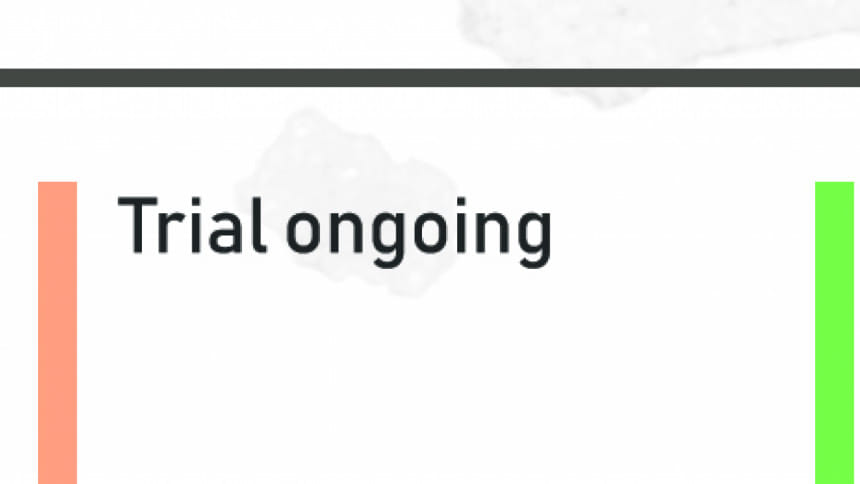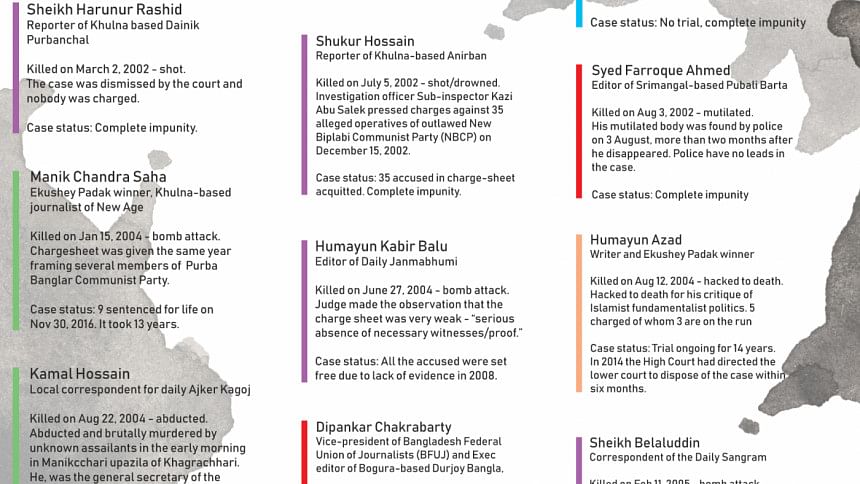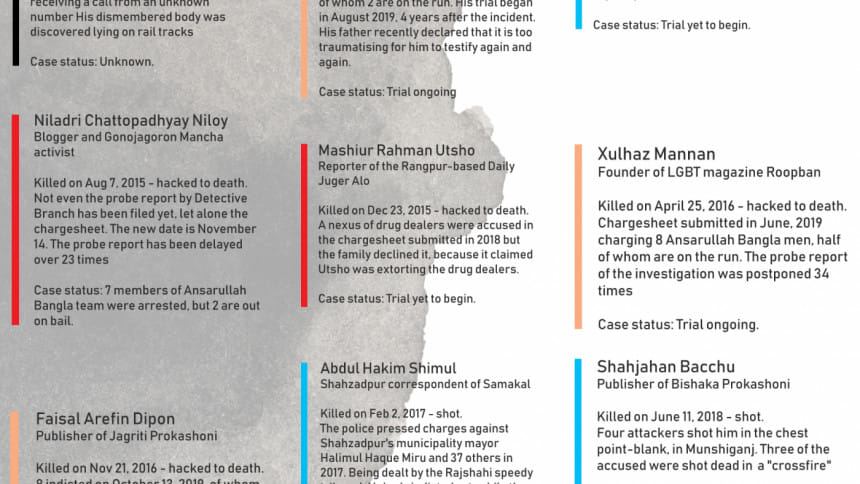Journalist, writer and blogger killings: Impunity under the radar
In the last 23 years, at least 32 journalists, publishers and writers have been killed, but only four of their murder cases ever saw the light of justice.
For some, the trials are going on year after year, while others have lost at court. Some of their names we know from recent memory, but the further back the case gets, the fainter our recollection becomes. Their names are not familiar—after all, how many know that in 1996 a local journalist of Nilphamari called Mohammad Quamruzzaman was shot dead by security officers while covering a crackdown on protestors of the opposition party. Fewer people know that this case is a startling example of impunity; no charge sheet was ever prepared, no trial ever took place.
Between 1996 and now, there are at least 13 cases of journalist killings with a similar fate of complete impunity, not least being the infamous Sagar-Runi murder which never went beyond the investigation stage, the probe report having been delayed 66 times. How the police can miss the deadline 66 times, one must ask.
But while the names of Sarwar Sagar and Meherun Runi are common household talk, few know that Syed Farroque Ahmed of Sreemangal suffered a similar fate.


Ahmed was the editor of a local publication of Sreemangal called Pubali Barta, and on August 3, 2002, his mutilated body was found on the rail tracks. He had gone missing two months before that. The case died along with the man—other than a 2002 post by Reporters Without Borders, there is no information available on who killed him and why.
Even those whose investigations were completed are having to wait for decades for justice. The trial of the murder of Saiful Alam Mukul, editor of the Jashore-based Daily Runner, has been going on for 21 years. He was killed by a handmade bomb thrown at him on the night of August 30, 1998. After over two decades, his family still hold press conferences demanding justice—the latest of which was held on his death anniversary this year. According to media reports, his brother Kabirul Alam Dipu addressed the reporters and said, “It would be better if I were not a brother of Mukul.”
And who can forget Humayun Azad. The eminent writer’s case is still unsolved 14 years on.


Most of them were district correspondents from outside of Dhaka, who were at the forefront of local drug wars and militant activities, but their cases remain unsolved. Almost all of them died in violent, pre-mediated murders. Between 2001 and 2004, four journalists in Khulna were murdered allegedly by terrorists of Purba Banglar Communist Party and its offshoots, but none of those cases saw the light of day. In fact, one of those cases—that of Sheikh Harunur Rashid who was shot point-blank at the chest—was dismissed in court, while another, that of Shukur Hossain, also shot, completed the trial without convicting anyone.
These trends bear bad news for the father of Ihsan Ibn Reza Fagun, a student journalist of Priyo.com, who was killed in May this year. His father, Kakon Reza, also a regular columnist in different newspapers, finds his faith faltering. “Fagun may have been killed for his reportage on a real estate company. We all know who the hit-man is but he is still out of reach,” says Reza. Meanwhile, he writes about his son in newspapers, making sure that Fagun will not be forgotten, the way many have been.
Story: Zyma Islam, Nilima Jahan
Graphics: Shaer Reaz







Comments